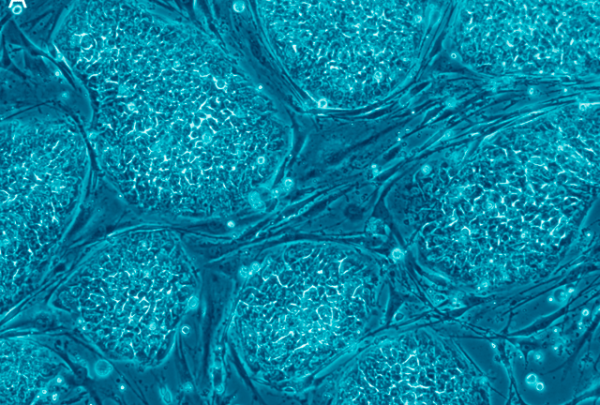What is the IUIS Nomenclature (NOM)?
The NOM is responsible for engaging the immunology community in an open forum, where universal and consistent nomenclatures for the cells, molecules and genes of the immune system are established and maintained. The NOM oversees the activities of 10 Sub-Committees dedicated to nomenclature for specific areas of immunology. NOM consist of the Chairs and Vice Chairs (or Co-Chairs) of these 10 Sub-Committees plus two NOM Co-Chairs.
What is the purpose of the NOM?
A common language is needed to facilitate communication among scientists for any area of science. The NOM is focused on common language for the cells, molecules and genes of the immune system. When scientists use ambiguous names or when they use different names for the same item, then this will lead to confusion in the field, among students and in the public.
At best, nomenclatures are universal, unambiguous, flexible, informative, neutral, easy to remember and simple. NOM favors the use of nomenclatures that build on established names. At times, it may be important to amend a given nomenclature, an endeavor that is quite challenging and requires interaction with all stakeholders. Collaboration and inclusion of stakeholders fosters universal adoption of a nomenclature; thus, several NOM Sub-Committees have partnered with a society or other entity that represents the respective scientific community.
Wherever possible, Sub-Committees should coordinate with other, broader nomenclatures, such as those of the Human Genome Nomenclature Committee (HGNC) or World Health Organization (WHO). Nomenclature assignment can be complicated by many factors, such as when multiple post-translational forms are produced from a single gene product. Naming based on the function of a gene product should be avoided as, with time, functions may evolve as newer assays and concepts emerge. The NOM’s Guidelines for IUIS Nomenclatures (see link below in Resources) lay out standards and protocols for new nomenclatures, and may involve development of new NOM Sub-Committees. The Guidelines include demonstration of expertise and inclusion of experts across the field, as well as geographical and gender balance across perspectives where possible, justification for the new nomenclature, and a plan for its adoption and maintenance.
NOM Sub-Committees
The NOM Sub-Committees maintain nomenclature for the cells, molecules and genes of the immune system.
The 10 NOM Sub-committees and their Chairs/Co-Chairs are:
- Allergens (Joanna Vitte, France)
- B Cells and Plasma Cells (Ignacio Sanz, USA)
- CD Molecules (Menno van Zelm, Netherlands & Tomas Kalina, Czech Republic)
- Complement (Trent Woodruff, Australia)
- Innate Lymphocytes (Marco Colonna, USA)
- Interleukins (Philip M. Murphy, USA)
- Killer-cell Immunoglobulin-like Receptots (KIRs) (Steven Marsh, UK)
- Mucosa- Associated Lymphoid Tissue (MALT) (Ana Catano, Brazil)
- Monocytes and Dendritic Cells in Blood (MonoDC) (Loems Ziegler-Heitbrock, Germany)
- T-cell Receptor and Immunoglobulin Nomenclature Sub-committee (Felix Breden, Canada)
NOM Committee Leadership
Leadership of the NOM consists of two Co-Chairs, who are elected from within the membership of the Nomenclature Sub-Committees. Due to separation of powers, a Sub-Committee Chair or Co-Chair cannot serve as a NOM Co-Chair. The term of the Co-Chairs is not to exceed 3 years and can be renewed once. For more information about Leadership and Membership, please read NOM’s Term of Reference here.
Claudia Kemper, PhD
Email: claudia.kemper@nih.gov
Jamie Scott, MD, PhD
Email: jkscott@sfu.ca
Resources
Guidelines for NOM Approval of New Nomenclatures
List of reports
- 2025 Annual Report
- 2024 Annual Report
- 2023 Annual Report
- 2022 Annual Report
- 2021 Annual Report
- 2020 Annual Report
- 2019 Annual Report
- 2018 Annual Report
- 2017 Annual Report
- 2016 Annual Report
- 2015 Annual Report
- 2014 Annual Report
See the Sub-Committees’ webpages for their membership and links to their annual reports.
New Leadership and Governance for IG/TR/MH Sub-Committee
The IG/TR/MH Nomenclature Sub-committee is responsible for nomenclature of immunoglobulin and T-cell receptor germline genes…
Zooming into the Adaptive Immune Receptor Repertoire (AIRR) Community III
This 2-day meeting marks the 10th anniversary of the founding of the AIRR Community, and…
Call for Applications to the IUIS T-cell and Immunoglobin Nomenclature Sub-Committee & Application Form
The T-cell and Immunoglobulin Nomenclature Sub-Committee (TR-IG NSC) of the International Union of Immunological Societies…
Back to Committees











